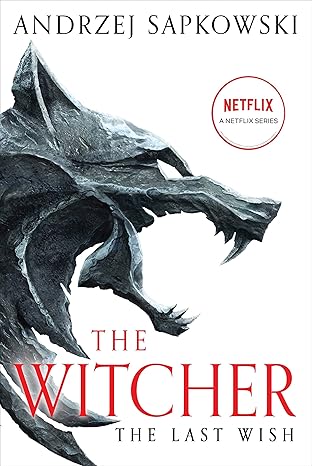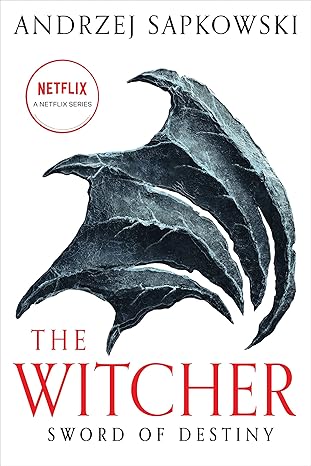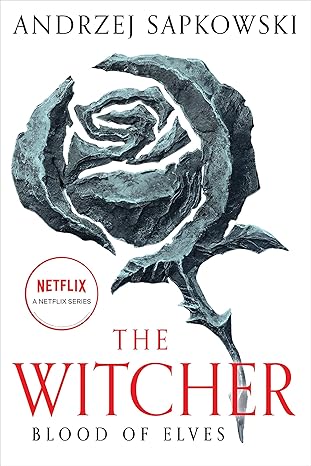
How to Read Andrzej Sapkowski's Books on The Witcher books explained
How to Read Andrzej Sapkowski's Books on The Witcher Books Explained
Estimated Reading Time: 10-12 minutes
Introduction
Andrzej Sapkowski, a Polish author born in 1948, is best known for his groundbreaking fantasy series, "The Witcher." His works have not only captivated readers but have also significantly influenced the fantasy genre, blending folklore, philosophy, and moral complexity. Sapkowski's unique narrative style and rich character development have made "The Witcher" a cultural phenomenon, inspiring video games, a hit Netflix series, and a dedicated fanbase worldwide.
This guide delves into three pivotal works in the Witcher saga: "The Last Wish," "Sword of Destiny," and "Blood of Elves." Each book contributes to the overarching themes of destiny, morality, and the human condition, providing readers with a comprehensive understanding of Sapkowski's literary universe.
Why Andrzej Sapkowski's Perspective Matters
Sapkowski's approach to storytelling is distinctive in its integration of Slavic mythology and philosophical inquiry. Unlike many contemporary fantasy authors who lean heavily on traditional tropes, Sapkowski challenges readers to confront the moral ambiguities of his characters. His narrative style often blends humor with dark themes, making his exploration of human nature both engaging and thought-provoking.
Sapkowski's perspective is vital for understanding the complexities of choice, consequence, and the nature of good and evil. His works resonate with readers seeking depth beyond mere escapism, offering insights into the ethical dilemmas that define our lives. The lasting impact of his ideas is evident in how they continue to inspire discussions around morality in literature and popular culture.
Overview of Recommended Books
The Last Wish
Main Themes and Arguments: "The Last Wish" serves as an introduction to Geralt of Rivia, a monster hunter navigating a world rife with moral ambiguity. The book is structured as a collection of interconnected short stories, each exploring themes of fate, love, and the nature of humanity.
Historical Context and Significance: Published in 1993, "The Last Wish" emerged during a time when Eastern European literature was gaining international recognition post-Cold War. Sapkowski's work reflects a blend of Polish folklore and contemporary issues, making it a significant cultural artifact.
Key Insights and Takeaways:
- Fate vs. Free Will: The stories challenge the notion of destiny, illustrating how choices shape one's path.
- Moral Complexity: Characters are often neither wholly good nor evil, prompting readers to reflect on their own moral judgments.
- The Nature of Love: The book explores love in various forms, highlighting its power to both heal and harm.
Why Read This Book: "The Last Wish" is essential for understanding the foundation of Geralt's character and the moral landscape of the Witcher universe. Newcomers and seasoned readers alike will appreciate its rich storytelling and philosophical depth.
Sword of Destiny
Main Themes and Arguments: "Sword of Destiny" expands on the themes introduced in "The Last Wish," delving deeper into the relationships and choices that define Geralt's life. The stories explore the consequences of love and the burdens of destiny.
Historical Context and Significance: Released in 1992, this collection further solidified Sapkowski's reputation as a master storyteller. It showcases his ability to weave intricate narratives that reflect the complexities of human emotions and societal norms.
Key Insights and Takeaways:
- Consequences of Choice: The stories emphasize that every decision carries weight, affecting not only the individual but also those around them.
- The Role of Women: Strong female characters challenge traditional gender roles, providing a nuanced perspective on femininity and power.
- Friendship and Loyalty: The bonds between characters are tested, highlighting the importance of loyalty in a world filled with betrayal.
Why Read This Book: "Sword of Destiny" is crucial for understanding Geralt's relationships and the emotional stakes of his journey. Readers seeking a deeper connection to the characters will find this collection particularly rewarding.
Blood of Elves
Main Themes and Arguments: "Blood of Elves" marks a transition from short stories to a full-length novel, focusing on the political landscape of the Continent and the impending war. It centers around Ciri's training and her role in the larger narrative, exploring themes of identity, power, and the burden of legacy.
Historical Context and Significance: Released in 1994, this novel reflects the complexities of national identity and conflict, paralleling the political landscape of Eastern Europe during the 1990s. The novel's exploration of power dynamics resonates with contemporary issues of governance and conflict.
Key Insights and Takeaways:
- Identity and Self-Discovery: Ciri's journey emphasizes the importance of understanding one's identity amidst external pressures.
- Power and Responsibility: The novel explores the responsibilities that come with power, particularly in the context of leadership and governance.
- The Role of Mentorship: Geralt's relationship with Ciri highlights the significance of mentorship in shaping future generations.
Why Read This Book: "Blood of Elves" is essential for understanding the overarching narrative of the Witcher saga. It expands the world-building and introduces critical themes that will resonate throughout the subsequent novels, making it a vital read for anyone invested in the series' lore.
How These Books Complement Each Other
Each of these works builds upon the last, creating a rich narrative tapestry that explores the complexities of choice, morality, and human relationships. "The Last Wish" sets the stage for Geralt's character, while "Sword of Destiny" delves into the emotional stakes of his journey. "Blood of Elves" expands the narrative scope, introducing new characters and political dynamics that enrich the story. Together, they provide a comprehensive understanding of the themes that define the Witcher universe.
Who Would Benefit from Reading These Books
These books are ideal for a diverse audience:
- Students and Academics: Those studying literature or philosophy will find valuable insights into moral complexity and character development.
- General Readers: Fans of fantasy and folklore will appreciate Sapkowski's unique blend of genres.
- Professionals Seeking Practical Wisdom: Readers looking for guidance on ethical dilemmas will find Sapkowski's exploration of morality relevant.
- Anyone Seeking Personal Growth: The themes of identity and self-discovery resonate with anyone on a journey of personal development.
Recommended Reading Order
- Start with: The Last Wish - This book introduces Geralt and sets the tone for the series, making it the perfect entry point.
- Continue with: Sword of Destiny - This collection deepens your understanding of Geralt's relationships and the emotional stakes of his journey.
- Advanced reading: Blood of Elves - This novel expands the narrative and introduces new themes, making it essential for grasping the overarching story.
Tips for Getting the Most Out of Each Book:
- Take notes on character relationships and moral dilemmas as you read.
- Reflect on how the themes relate to contemporary issues.
- Engage with online communities to discuss interpretations and insights.
Conclusion
Andrzej Sapkowski's contributions to the fantasy genre through "The Witcher" series are profound and far-reaching. His exploration of moral ambiguity, destiny, and the human experience resonates with readers across generations. By delving into "The Last Wish," "Sword of Destiny," and "Blood of Elves," readers can gain a comprehensive understanding of the complex themes that define this iconic series.
I encourage you to explore these works, engage with their rich narratives, and reflect on the timeless relevance of Sapkowski's ideas. Whether you're a newcomer or a seasoned fan, the journey through the Witcher universe promises to be both enlightening and entertaining.
Tags: #Andrzej Sapkowski #The Witcher books explained #Philosophy #ReadingGuide #ClassicLiterature #Wisdom
Featured Books

The Last Wish
by Andrzej Sapkowski
Published: 1993
A collection of short stories that introduce Geralt of Rivia and the world of The Witcher.

Sword of Destiny
by Andrzej Sapkowski
Published: 1992
More short stories that expand on Geralt’s relationships and the destiny of a child.

Blood of Elves
by Andrzej Sapkowski
Published: 1994
The first novel in the saga, following Ciri’s training and the beginning of a war.